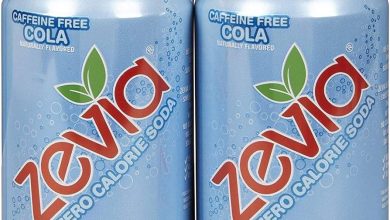Kidney Beans (Royal Red, Mature Seeds, Raw)
Kidney beans, specifically the royal red variety, are a rich source of nutrition, offering a wide range of essential nutrients that support overall health. These mature seeds, when consumed in their raw form, provide significant energy and a healthy balance of macronutrients. Packed with fiber, protein, and various minerals, kidney beans can be a valuable addition to a balanced diet.
Nutritional Information (Per 100g Serving)
| Nutrient | Amount |
|---|---|
| Energy | 329 kcal |
| Protein | 25.33 g |
| Total Fat | 0.45 g |
| Saturated Fat | 0.065 g |
| Carbohydrates | 58.33 g |
| Fiber | 24.9 g |
| Sugar | 0.0 g |
| Calcium | 131 mg |
| Iron | 8.7 mg |
| Magnesium | 138 mg |
| Phosphorus | 406 mg |
| Potassium | 1346 mg |
| Sodium | 13 mg |
| Zinc | 2.66 mg |
| Copper | 1.0 mcg |
| Manganese | 1.109 mg |
| Selenium | 3.2 mcg |
| Vitamin C | 4.5 mg |
| Thiamin (Vitamin B1) | 0.39 mg |
| Riboflavin (Vitamin B2) | 0.24 mg |
| Niacin (Vitamin B3) | 2.106 mg |
| Vitamin B6 | 0.396 mg |
| Folate (Vitamin B9) | 393 mcg |
| Vitamin B12 | 0.0 mcg |
| Vitamin A | 0.0 mcg |
| Vitamin E | 0.0 mg |
| Vitamin D2 | 0.0 mcg |
Health Benefits and Dietary Considerations
Kidney beans are an excellent source of plant-based protein, making them a fantastic option for vegetarians and vegans looking to meet their protein needs. They are also an excellent source of fiber, which can support digestive health, help regulate blood sugar levels, and promote a sense of fullness, making them beneficial for those managing their weight. Additionally, kidney beans are rich in potassium, magnesium, and iron, all of which contribute to overall cardiovascular health, bone strength, and the efficient functioning of various bodily systems.
The high iron content makes kidney beans particularly beneficial for those at risk of iron deficiency, including women and individuals with certain medical conditions. Kidney beans also provide folate, a crucial nutrient for cell growth and development, particularly important for pregnant women.
For individuals monitoring their sodium intake, kidney beans are a suitable choice as they contain only a small amount of sodium (13 mg per 100g serving). The zero sugar content is also a plus for those managing blood sugar or following a low-sugar diet.
Allergen Information
Kidney beans are generally safe for most individuals; however, they should be cooked thoroughly before consumption to eliminate any harmful lectins present in raw beans. There is no common allergen associated with kidney beans, but individuals with specific legume allergies should exercise caution. Always consult a healthcare provider if there is any concern about potential allergies.
Dietary Preferences
- Vegan & Vegetarian: Kidney beans are plant-based, making them an ideal protein source for vegan and vegetarian diets.
- Gluten-Free: Naturally gluten-free, kidney beans can be safely consumed by individuals with gluten sensitivities or celiac disease.
- Low-Sodium & Low-Sugar: Kidney beans are low in both sodium and sugar, fitting well into low-sodium and low-sugar dietary plans.
Cooking Tips and Usage
To prepare kidney beans, they should be soaked in water for at least 8 hours or overnight, followed by thorough cooking to ensure they are safe to eat. Soaking helps to reduce the cooking time and enhances the bean’s digestibility. Kidney beans can be used in a variety of dishes, including soups, stews, salads, curries, and chili, adding a hearty texture and earthy flavor. For an even richer taste, they can be roasted or incorporated into dips and spreads.
Conclusion
Royal red kidney beans are not only delicious but also pack a nutritional punch. With high levels of protein, fiber, vitamins, and minerals, they provide numerous health benefits, including supporting heart health, bone strength, and digestive function. Whether you’re looking to create hearty dishes or simply add more plant-based options to your meals, kidney beans are a versatile and health-boosting ingredient that fits into a variety of dietary preferences.










